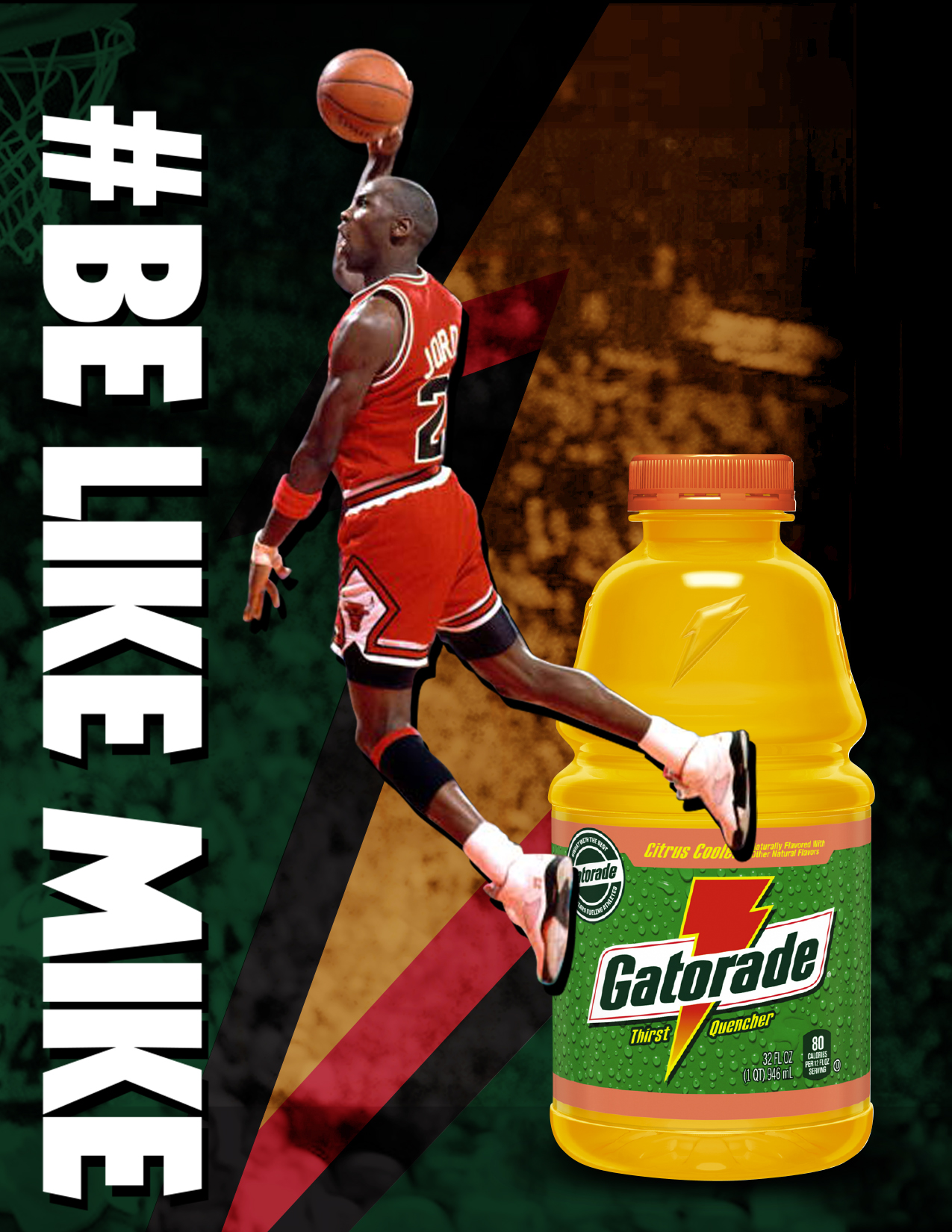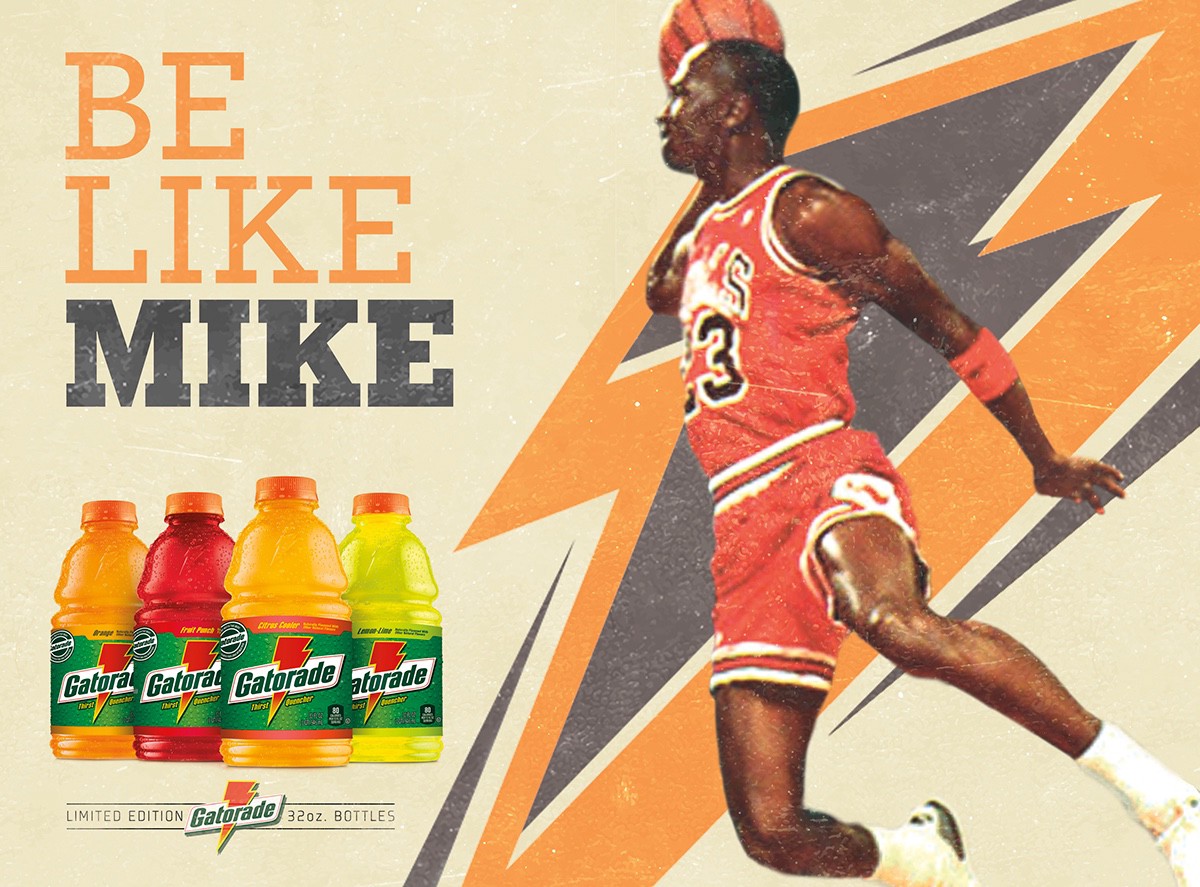Thread
Celebrity ads are everywhere.
The philosophy of René Girard explains why:
The philosophy of René Girard explains why:
Advertisements used to be product-driven.
This old ad for Lipton tea focuses on the quality of the tea. It advertises the product's convenience and popularity. Instead of focusing on celebrities like modern ads, the images focus on convenience, quality, and happy customers.
This old ad for Lipton tea focuses on the quality of the tea. It advertises the product's convenience and popularity. Instead of focusing on celebrities like modern ads, the images focus on convenience, quality, and happy customers.
Today's ads are increasingly personality-driven.
Gatorade was a pioneer here. Their "Be Like Mike" advertisements didn't promote tangible factors like hydration or electrolytes. Instead, the drink flew off supermarket shelves because it was associated with Michael Jordan.
Gatorade was a pioneer here. Their "Be Like Mike" advertisements didn't promote tangible factors like hydration or electrolytes. Instead, the drink flew off supermarket shelves because it was associated with Michael Jordan.
Why have advertisements changed so much?
Marketing is the creation of desire at scale. Girard says that people don't have logical justifications for their desires. They don't know what they desire. Instead, they look at what others desire, and take on their desires as their own.
Marketing is the creation of desire at scale. Girard says that people don't have logical justifications for their desires. They don't know what they desire. Instead, they look at what others desire, and take on their desires as their own.
Celebrity ads shape our desires without our awareness. Fame sells. In my own life, I remember walking into a store and seeing a T-shirt that looked ugly and uncomfortable. Yuck! Then I walked up to it, touched it, realized it was Kanye West's brand, and immediately wanted one.
Advertisers exploit our imitative programming. Thomas Jefferson knew this, and wrote: "Man is an imitative animal. This quality is the germ of all education in him. From his cradle to his grave he is learning to do what he sees others do."
Girard would say that Gatorade and Kanye's brand promise the being and prestige of the people they're associated with. Our identity is at stake. We care less about the intrinsic value of an object than the people it's associated with, and what owning that object says about us.
Did ads change because marketers read Girard?
I don't think so. Influencer marketing is downstream from the invention of mass media and high-quality printers, which made faces more vivid on the page. But if Girard's right, we should expect marketers to discover its principles.
I don't think so. Influencer marketing is downstream from the invention of mass media and high-quality printers, which made faces more vivid on the page. But if Girard's right, we should expect marketers to discover its principles.
Girard's philosophy inverts our understanding of psychology. He challenges the notion that we're rational, utility-maximizing creatures with an authentic core of desires to tap into. Instead, he says that we learn what to value by imitating our peers.
Influencer marketing works because people don't want to be weird. It's a little paradoxical, but good ads simultaneously tell us two things: (1) buying this won't make you a total weirdo and (2) buying this will make you different.
Human psychology is weird. You turn people off whenever you signal status too directly, which is why this suitcase doesn't really achieve its stated purpose.
Having a model that others can copy normalizes behavior, and this video of a guy dancing at a music festival is my favorite example. The more influential the model, the faster social norms can change. That's why ads focus on celebrities.
If you’d like to learn more about Girard’s philosophy, check out this lecture I recorded with @JohnathanBi.
We created a comprehensive, yet accessible guide to Mimetic Theory without the jargon you often find in academia.
It’s free to watch on YouTube.
www.youtube.com/watch?v=5Qu6vBebwwg
We created a comprehensive, yet accessible guide to Mimetic Theory without the jargon you often find in academia.
It’s free to watch on YouTube.
www.youtube.com/watch?v=5Qu6vBebwwg
@JohnathanBi We’ll be releasing six more lectures, which will dive deeper into the specifics of Girard’s philosophy.
Sign up here to receive them by email.
girardlectures.com/
Sign up here to receive them by email.
girardlectures.com/
Mentions
See All
Sahil Bloom @SahilBloom
·
Jun 6, 2022
Great thread



